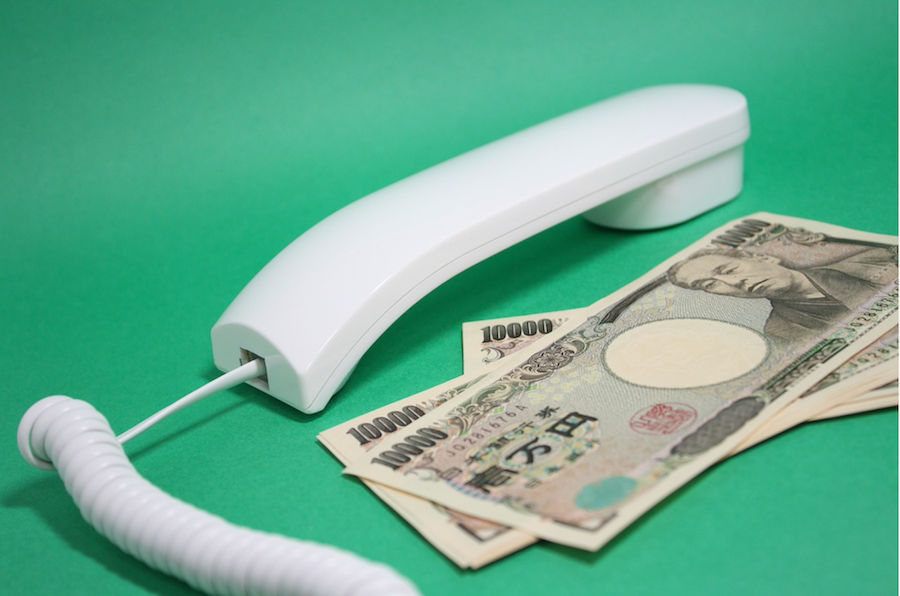Unlimited Options: Sending Money to Someone Without a Bank Account Explained
GPT_Global - 2024-04-27 09:30:08.0 84
Are there any restrictions on the amount of money I can send to someone without a bank account?
If you are looking to send money to a loved one without a bank account, it is important to know if there are any restrictions on the amount you can send. This is especially relevant if you frequently use remittance services to send money to family members or friends living in another country.
The good news is that there is generally no set limit on the amount of money you can send to someone without a bank account. However, there are certain factors that may affect the amount you are able to send, such as the policies of the specific remittance service you are using and the regulations of the receiving country.
One restriction to be aware of is the maximum transaction limit set by some remittance companies. This limit can vary greatly from company to company, so it is important to do your research and compare different options before choosing a service. Some companies may also have a daily or monthly sending limit, so make sure to check if this applies to the amount you want to send.
When sending money internationally, there may also be restrictions set by the receiving country. For example, some countries have limits on the amount of foreign currency that individuals can receive, which may affect how much you are able to send to your recipient. Additionally, some countries may require individuals to provide proof of income or justification for receiving large amounts of money.
It is important to keep in mind that these restrictions are in place to prevent money laundering and other illegal activities. While they may be an inconvenience, they ultimately help to keep the remittance industry safe and secure for everyone involved.
So, while there may not be a specific limit on the amount you can send to someone without a bank account, it is important to be aware of any potential restrictions and plan accordingly. Always make sure to research the policies of your chosen remittance service and the receiving country before sending money, to ensure a smooth and hassle-free transaction.

Can I use a cryptocurrency platform to send money to someone without a bank account?
The use of cryptocurrency platforms for remittance business has been gaining popularity in recent years, thanks to its convenience and low transaction fees compared to traditional methods. But can you use it to send money to someone who doesn't have a bank account? The answer is yes.
Cryptocurrency platforms, such as Bitcoin or Ethereum, allow users to send and receive money without the need for a central authority, like a bank. This means that anyone with access to these platforms can send and receive money, regardless of whether they have a bank account or not.
This opens up doors for individuals who are unbanked or underbanked, especially in developing countries where access to banking services may be limited. They can now receive remittances from their loved ones abroad through cryptocurrency platforms, providing them with a faster and more affordable way to receive money.
One of the main advantages of using cryptocurrency platforms for remittance is the low transaction fees. Traditional remittance methods often charge high fees, making it costly for people to send money to their families or friends in other countries. Cryptocurrency platforms, on the other hand, have significantly lower transaction fees, making it a more affordable option for sending money.
Moreover, cryptocurrency platforms offer faster transaction times compared to traditional methods, which can take several days to complete. This is especially beneficial for individuals who need to receive money urgently, such as during emergencies or to cover daily expenses.
However, there are some challenges to consider when using cryptocurrency platforms for remittance. The biggest concern is the volatility of cryptocurrency prices. Since the value of cryptocurrencies can fluctuate rapidly, there is a risk that the recipient may receive less value than what was sent. To mitigate this risk, some platforms offer stablecoins, which are cryptocurrencies pegged to a stable asset, such as fiat currency.
In conclusion, yes, you can use cryptocurrency platforms for remittance to send money to someone without a bank account. It offers a more convenient, faster, and more affordable way to send money across borders. However, it is essential to consider the risks involved, such as price volatility, before using this option. With the continuous development of cryptocurrency technology, it is expected that there will be more innovations in this area, making remittance even more accessible and secure for everyone.
Do I need to have a bank account myself to send money to someone without a bank account?
If you're looking to send money to someone without a bank account, you may be wondering whether or not you need a bank account yourself. The short answer is no, you don't necessarily need one. Many remittance businesses offer alternative methods for sending money that do not require a bank account on either end.
One option is to use a money transfer service. These services allow you to send money in various ways, such as through a mobile app, prepaid card, or cash pickup location. Some companies also offer the option to send money directly to a recipient's phone or email, without the need for a bank account.
Another option is to use a pre-loaded debit card. These cards can be purchased at many retail stores and loaded with funds to be sent to a recipient. They can then withdraw the funds at an ATM or use the card to make purchases.
If you do have a bank account, you can also use it to send money to someone without a bank account. Many banks offer options for sending money electronically to a recipient's phone number or email address, rather than their bank account.
Ultimately, whether or not you need a bank account to send money to someone without one will depend on the specific remittance company or service you choose. It's important to research your options and compare fees and exchange rates to find the best method for your needs.
How can I track the status of the money transfer to someone without a bank account?
Are you looking to send money to a loved one who doesn't have a bank account? Don't worry, there are still options available to you. In today's global world, many people rely on remittance services to send and receive money internationally. But how can you track the status of your money transfer without a bank account involved? Here are some tips to help you keep track of your transaction.
Firstly, make sure to keep all your transaction receipts and reference numbers safe. These are essential in tracking the progress of your remittance. You can use the reference number to check the status of your transfer online or by calling the remittance company. This will give you an update on when the money will be available for pick-up by your recipient.
Another way to track your money transfer is through tracking apps or websites offered by some remittance companies. These tools allow you to monitor the status of your transfer in real-time. Some even offer notifications via email or SMS to keep you updated on the progress of your transaction.
If all else fails, you can always contact the remittance company directly for assistance. They have a customer service team that is available to help you with any queries or concerns you may have. They can provide you with the latest updates on your transfer and address any issues that may arise.
Finally, it is crucial to choose a reliable and trustworthy remittance company for your transactions. With a reputable company, you can have peace of mind knowing that your money will reach its intended recipient promptly and securely. Make sure to do your research and read customer reviews before choosing a remittance service.
In conclusion, tracking the status of your money transfer to someone without a bank account may require some extra effort, but with the right tools and a reliable remittance company, the process can be smooth and hassle-free. Keep your transaction receipts and reference numbers handy, use tracking apps or websites, and don't hesitate to contact the remittance company directly for assistance. With these tips, you can stay informed and ensure that your money reaches your loved one safely and efficiently.
Is it legal to send money to someone without a bank account?
Sending money to someone without a bank account is not only possible, but also legal. In fact, this is one of the main services offered by remittance businesses. Remittance businesses specialize in facilitating the transfer of funds from one individual to another, either domestically or internationally.
In order to send money to someone without a bank account, the sender can use various methods offered by remittance businesses, such as cash pick-up, mobile money transfer, or prepaid cards. These options allow the recipient to receive the funds even if they do not have a traditional bank account.
While it is legal to send money to someone without a bank account, it is important to note that there may be limits on the amount that can be sent and received. This is to prevent money laundering and other illegal activities. It is always best to check with the specific remittance business for their policies and regulations.
Additionally, fees may vary depending on the method of transfer and the amount sent. Some remittance businesses may charge higher fees for sending money without a bank account, so it is important to compare rates and choose a reputable company with competitive fees.
Some individuals may opt to send money to someone without a bank account in order to avoid the lengthy process and paperwork required for setting up a traditional bank account. This can be particularly useful for individuals living in remote areas or for those who do not have proper identification documents. However, it is important to keep in mind that operating without a bank account may limit access to other financial services and opportunities.
In conclusion, it is perfectly legal to send money to someone without a bank account through a remittance business. However, individuals should carefully consider the fees and limitations associated with this option, and ensure that they are sending money to a trusted recipient. By using a reputable remittance business, individuals can safely and legally send money to their loved ones without the need for a traditional bank account.
About Panda Remit
Panda Remit is committed to providing global users with more convenient, safe, reliable, and affordable online cross-border remittance services。
International remittance services from more than 30 countries/regions around the world are now available: including Japan, Hong Kong, Europe, the United States, Australia, and other markets, and are recognized and trusted by millions of users around the world.
Visit Panda Remit Official Website or Download PandaRemit App, to learn more about remittance info.

